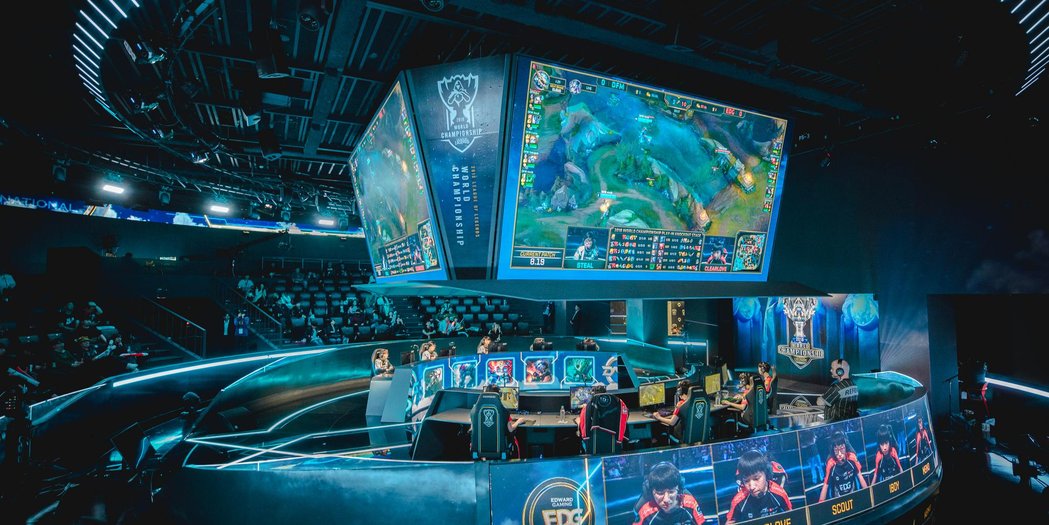I’m going to be completely honest with you all: no one expects the Super Bowl to flop in viewership. Sure, it was one of the least watched Super Bowls in recent times, but that doesn’t change the fact that it’s ingrained in our culture. Companies pay an absurd amount of money to place 15 second ads. I get confused when people say they don’t watch the Super Bowl. Maybe it’s the circles that I travel in. Maybe the Super Bowl is as culturally rooted in the American psyche as I think it is.
And—hot take alert—I think that in the future (and not as distant as some may think) we’ll be saying these things about video games.
Yes, video games. Esports. I can hear you doubting me now: “Matt, you bum, esports don’t have viewers. No one wants to watch people stare at a screen and play video games.”
It’s a bold argument, for sure, but it doesn’t hold any weight. Some of the most popular entertainers in the world are “Streamers”, people who broadcast themselves on websites such as twitch.tv or mixer.com playing video games. Peaking right now are people like Ninja, real name Tyler Blevins, who played “Fortnite” with Drake and hopped into the mainstream. If you were paying close attention to the commercials during the Super Bowl, you would’ve seen Ninja in the NFL 100 TV spot, dressed as a waiter, standing out with his signature shock of brightly colored hair, this time pink. His streams garner thousands of viewers concurrently, and he holds lucrative sponsorships with the companies like of Red Bull.
Aside from streamers, games such as “League of Legends” have seen lucrative ventures come to fruition as one of the most successful competitive leagues in the world. Owned by Riot Games, “League of Legends” is one of the most popular video games in the world, with over 80 million players measured last month. It held its World Championship event from September to November 2018. At its peak during the Grand Finals in November, there were over 200 million unique viewers at one time. The Overwatch League, a competitive association set around Blizzard Inc. game “Overwatch,” has been renewed for another season and added several expansion teams around the world.
What could be fueling the rise of video games? Why are viewers piling in, and how can video games continue to reap success from an entertainment industry that is going increasingly digital?
Streaming is a lucrative venture, of course, and the broadcasting of professional esports provides people with a competitive form of games that they enjoy in leisure. It’s the same principle as watching any sort of traditional sport, and as accessible as any other program. Like we see in traditional sports, there are household names and personalities on display for fans and aspiring professional or pro-am players, such as Faker, Sneaky, Jensen, Wolf or Aphromoo.
Casters make the game as exciting, if not more so, than any traditional sporting event. Of course, not every broadcaster can be a Tony Romo, but there’s the same level of passion and intensity, if not incredibly more so because of the constant action, variation and strategic difference that appears in each match. Football, for example, has seen the same standard plays and formations for the past few years. Not much changes or evolves drastically, with one of the only exceptions being Chip Kelly’s short and disastrous tenure as the Philadelphia Eagles’ Head Coach, where he ran a high-tempo, no-huddle offense. It worked briefly, but teams adapted.
Even before then was the short-lived but energetic Wildcat offense popularized by the Miami Dolphins. Again, we saw intelligent defensive coordinators learn how to shut down that particular brand of offense.
In “League of Legends,” what we see isn’t stale, and it won’t get stale. Riot Games puts out what are called “patches” that essentially balance the game, working to counter any advantages that picking or using certain items and champions, the characters used in “League of Legends”, uses. For example, a champion that sees an abnormally high “win-rate”, the percent of games won by that champion’s team when that champion is played, would get a “nerf”, making their stats or abilities weaker in an effort to level the playing field.
Adaptation needs to be quick by necessity. If you don’t adapt to a team’s strategy, you’ll be crushed. This is called the “meta” of the game, which dictates how people play through champion selection, item purchasing and general gameplay.
Esports has dedicated fans from all walks of life, with jerseys available for purchase with the names of your favorite players on them. You can buy merchandise, such as apparel and décor to rep your team. There are storylines in esports, through free agency, followed with the same fervor as any sports market. Who’s going to go where?
Esports and video games also bring accessibility to the forefront. Want to play “League of Legends”? Download it on your computer. Most run it. It’s free, and doesn’t require any purchases to be able to run with it.
The point I’m trying to make is that video games have quite the earning potential, and it’s being universally recognized through investments made by companies and organizations. Jed Kaplan, minority owner of the Grizzlies, invests in an organization called “SimplicityGG” which sponsors players and teams as they compete in various leagues in different games and esports.
So, it’s time that we stop treating video games like a passing fad: they’re here to stay, and their potential to evolve is unparalleled amongst currently recognized sports around the world. So, give them a shot.
But, be warned: once you start to learn, you won’t want to stop.



